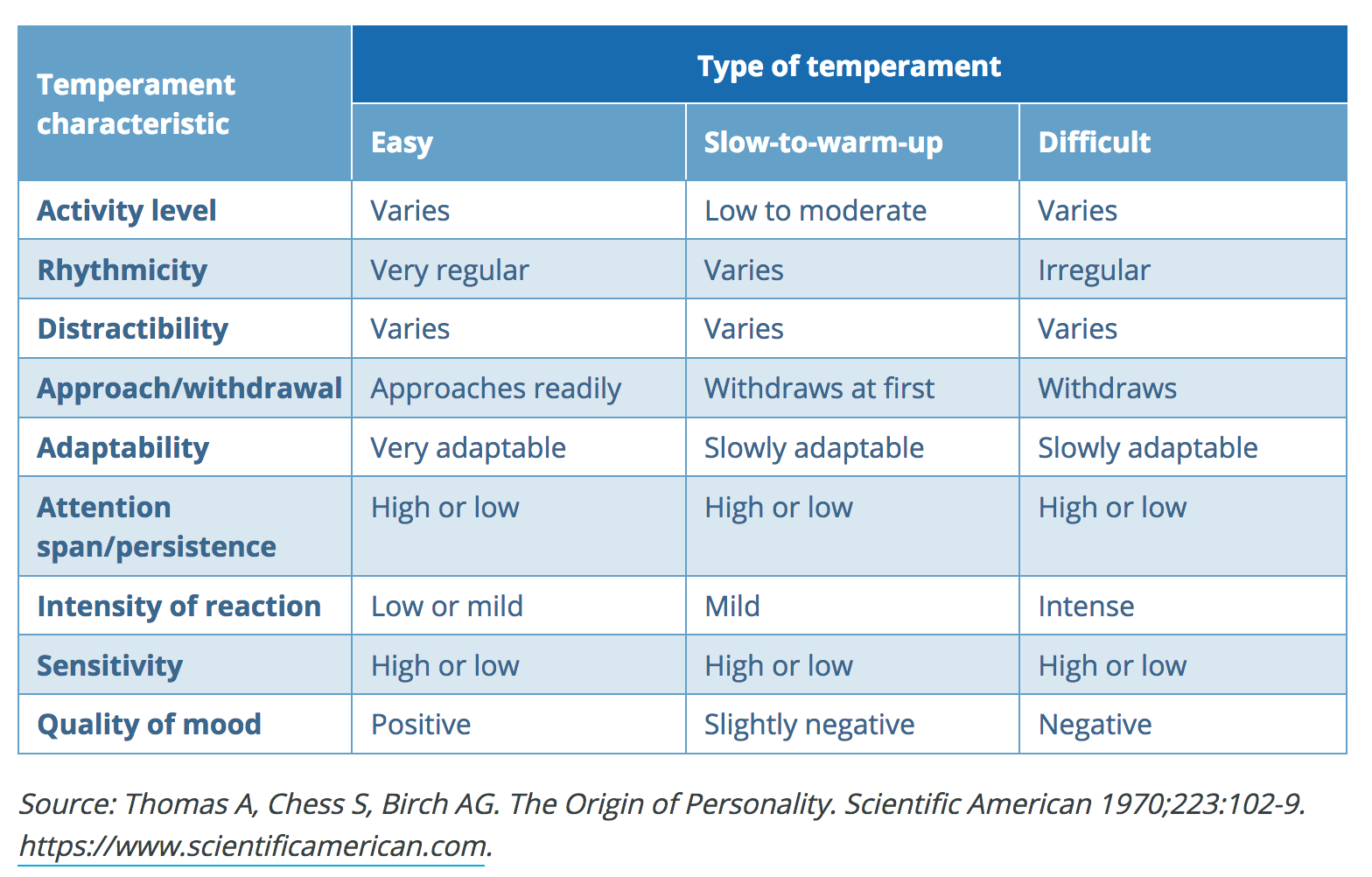Is there one relationship you struggle with, leading you to believe it’s just a bad match? It probably is! But, that doesn’t mean you can’t make it a better one.
I learned this year that infants have essentially 9 characteristics that define their temperament. That’s it. When I look at it broadly, I realize these characteristics define all of us to some extent. When we find someone whose temperament is an easy match for our own, the relationship seems seamless. But, we often clash with those closest to us. Our parents, our siblings and our children can have temperaments that are far too similar to our own in some days and far too different from our own in others. Taking a moment to assess these qualities can help us consciously choose how to respond and build better relationships.
Here are the qualities that make up infant temperament:
- Activity level: how active the baby is
- Rhythmicity: how regular the baby’s sleep/wake and feeding routines are
- Distractibility: how easily the baby can be distracted from something they are doing
- Approach/withdrawal: how the baby responds to new experiences
- Adaptability: how the baby adapts to new situations
- Attention span/persistence: how persistent the baby is when faced with challenges
- Intensity of reaction: how intense the baby’s responses and emotions are
- Sensitivity: how sensitive the baby is to flavours, textures, and noises
- Quality of mood: whether the baby has a happy, positive mood most of the time or an unpleasant, negative mood most of the time
Now, the key is to understand our own temperaments as well. So, if my child is highly active and I am, too, that’s a great match! If, however, I am withdrawn and like to limit new experiences but my baby loves stimulation, we may end up with a conflict.
Try honestly evaluating your temperament along this spectrum. If you’re uncertain where you fall, ask a close friend or family member to answer the questions for you. Then, answer these questions for the person you’re struggling with. Chances are you’ll find one or two areas where you’re in obvious conflict. This is where you do the work!
You can’t change someone else, and innately you cannot change your own personality or temperament, but you can set boundaries for yourself, find ways to pre-calibrate before interactions so you don’t have to re-calibrate after, and ultimately gain more understanding with this self awareness.